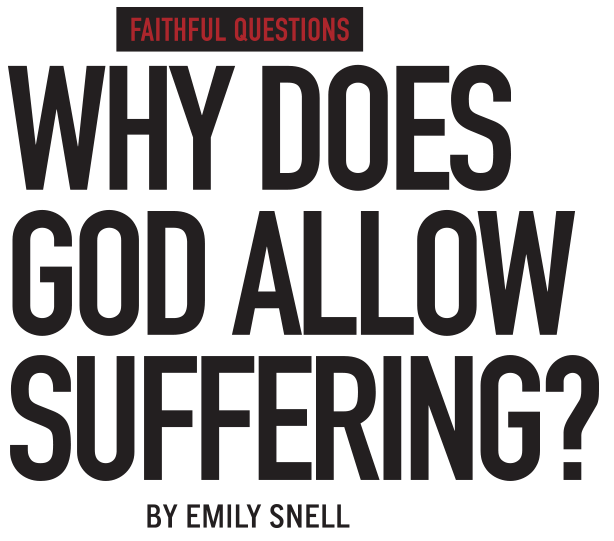


A child bathes in water from an open pipe following Typhoon Haiyan in Tacloban, Philippines. Natural and humanitarian disasters often raise questions of why there is suffering.
UMNS/MIKE DUBOSE

A child bathes in water from an open pipe following Typhoon Haiyan in Tacloban, Philippines. Natural and humanitarian disasters often raise questions of why there is suffering.
UMNS/MIKE DUBOSE
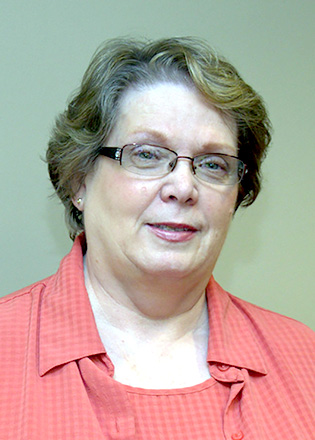
The Rev. Linda Louderback
GREAT PLAINS CONFERENCE
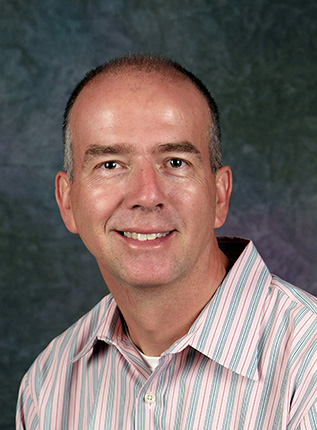
Ted Vial
ILIFF SCHOOL OF THEOLOGY
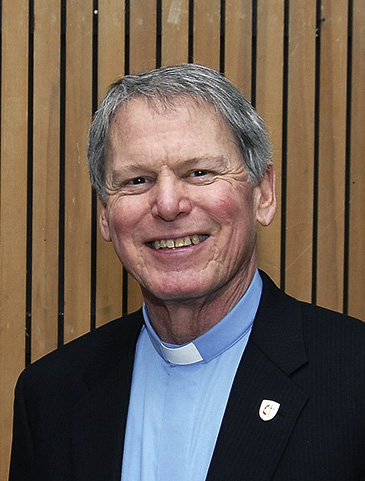
The Rev. Don Lee
COURTESY PHOTO
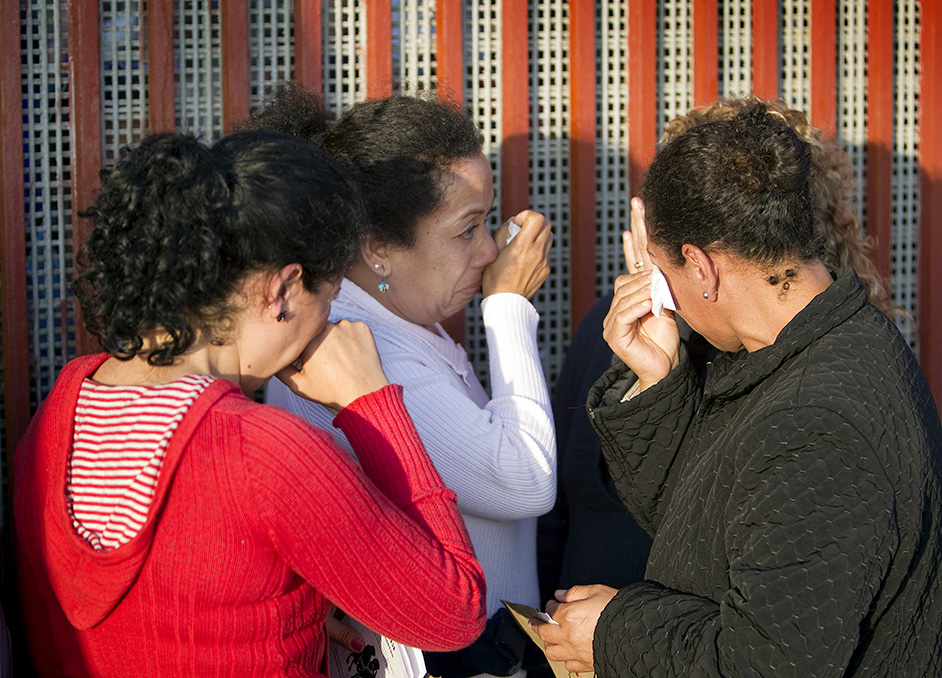
Mothers who are separated from their families in the United States cry at the Mexican side of the border wall between San Diego and Tijuana, Mexico, during the Posada Without Borders during Advent 2013.
UMNS/MIKE DUBOSE

Mothers who are separated from their families in the United States cry at the Mexican side of the border wall between San Diego and Tijuana, Mexico, during the Posada Without Borders during Advent 2013.
UMNS/MIKE DUBOSE
Tragedy strikes. A loved one dies unexpectedly. Mental illness steals a family’s hope. Someone gets cancer. In the face of such pain and suffering, people ask, “Where is God in this?”
The Rev. Don Lee, pastor of First United Methodist Church in Sacramento, California, said this is a very normal response.
“I think it’s [a question] everyone asks in the face of tragic suffering,” he said. “It’s a natural question.”
Lee said he views suffering as an expected result of living in a broken world.
“There’s a certain amount of chaos in the world,” he said. “Accidents happen. Our bodies are fragile. They can become diseased. There are lots of reasons that they might be thrown into suffering. I think suffering is inherent in the natural order.”
Ted Vial, professor of theology and modern western religious thought at Iliff School of Theology, shares a similar belief.
When it comes to the leading schools of thought on suffering, Vial said he tends to follow the theological ideas developed by Augustine of Hippo.
“Augustine’s theory goes something like this,” Vial explained. “Everything God creates is good. But because of sin, humans have put themselves out of their proper place in the cosmos.”
For example, Vial said, natural weather phenomena such as wind and rain are not inherently bad, but they can lead to tragedy because the world is not the way God meant it to be.
“People are created to live up where the angels are, but because of sin, we long for things that are less good,” he said. “We pull ourselves down until we dwell in the world of floods and storms. The floods and storms aren’t the problem; the problem is we are out of place. We shouldn’t be here.”
‘More questions than answers’
Throughout her years in ministry, the Rev. Linda Louderback, superintendent of the Wichita West District in the Great Plains Conference, said she has encountered the question of God’s role in suffering many times.
“Why couldn’t God stop that?” people have asked her. “God gave us free will and put us in place in this world as it is. I don’t know why. What I’ve discovered in my life is that there are way more questions than answers. We have to stay close to God in prayer, and then we have to listen and pay attention for God’s response.”
Despite wanting to offer answers in an attempt to help those who suffer, Lee said people often let fear hold them back from doing or saying anything.
“The answers that are unacceptable from our point of view are any answers that imply that God causes suffering or is ignoring the situation or that God is trying to punish the person or to teach a lesson,” Lee said. “Those are the kinds of responses people give to one another because they are short on good answers. Part of the problem is there is no simple answer, I guess.
“I always try to offer some alternative ways for people to respond vocally,” he said. For example, Lee said he thinks it is wrong for people to say God “took” a loved one away from someone. Instead, he suggests, “God doesn’t take us, but God receives us.”
Vial said words ultimately are not what most people need. “What’s really important is to be present and be there,” he said. “You don’t have to say the right thing, and you don’t have to fix it. You just have to be there. That’s enormously comforting and useful.”
When words seem appropriate, Flora Slosson Wuellner, author of numerous books related to healing and wholeness, has found that the first and best thing to say can be, “You are not alone.”
“I hold their hands,” she explained, “and say, ‘You are not alone for one minute. The Eternal Lover at this moment holds you, suffers with you, helps bear the burden and will bring you to the other side.’”
‘God understands’
As suffering people seek answers and healing, sometimes God’s response comes in the form of caring friends.
Louderback, whose mother and husband died within the last few years, said she “would’ve never been able to live through those two things if God hadn’t been right there with me the whole time, along with people who were supporting me. ... Somehow, if we pay attention, God shows us that he is with us even in the midst of difficulties.”
The pastors all agreed that finding support in relationships is crucial to the healing process.
Christian community helps people grow from their suffering, said Lee, whose twin sons died in a bus accident at age 15.
“You grow from it, and you become this new person from it,” he said. “That’s part of the transformation that God is doing in our lives. I don’t think we can do that in isolation. I think that happens in community and with the help and love of others. I certainly experienced that in my life.”
“A lot of times we suffer alone,” Louderback said. “We draw more into ourselves. Now, this is coming from an extrovert. ... I think that we need to have a one-on-one relationship with somebody in our church, or it could be a neighbor or friend who knows God. It could be a pastor, even if you don’t know the pastor. We need to find a way to reach out.”
Just as those who are suffering can decide to open their hearts to others, Slosson Wuellner said they also decide if they are ready to open their hearts to God.
“It’s our choice whether we turn to that Presence as the beloved or whether we continue to wall ourselves off with fury and terror,” she said. “Doubts come to all of us. It’s not a matter of doubts (being) wrong. They aren’t. But even in the midst of our doubts and anger and fear, we can still choose to accept God’s love.”
In her book Prayer, Fear and Our Powers (The Upper Room), Slosson Wuellner recommends that those who are suffering adopt a patient and self-compassionate approach to their relationship with God.
“Remind yourself that God understands your wounds, your hesitations, your fears and does not demand instant complete trust and surrender. God is far more patient than we are and will not give up on you or leave you. Trust grows slowly. Take as much time as you need, and do not push yourself or allow anyone else to do so.”
Emily Snell is a freelance writer in Nashville, Tennessee.